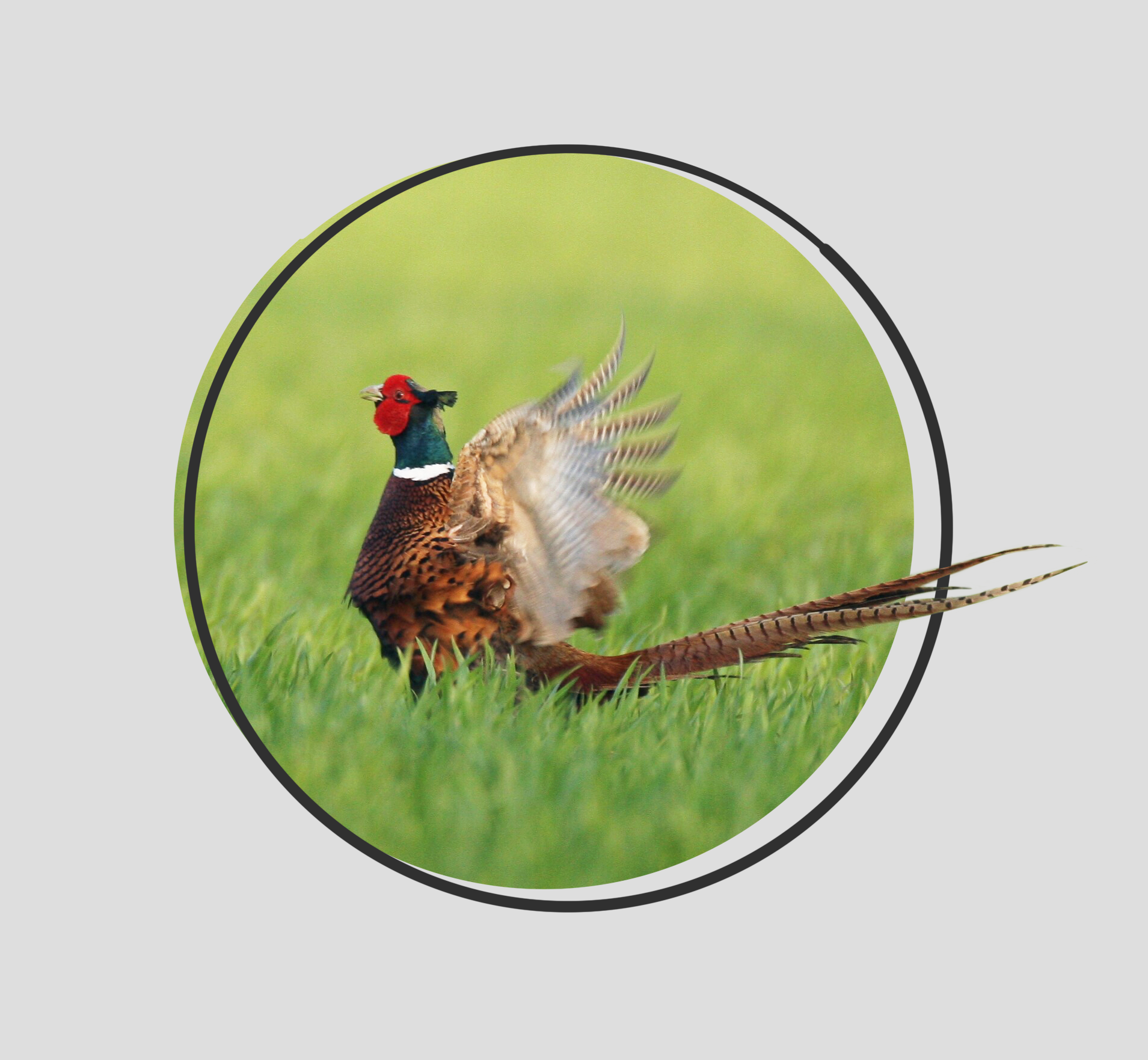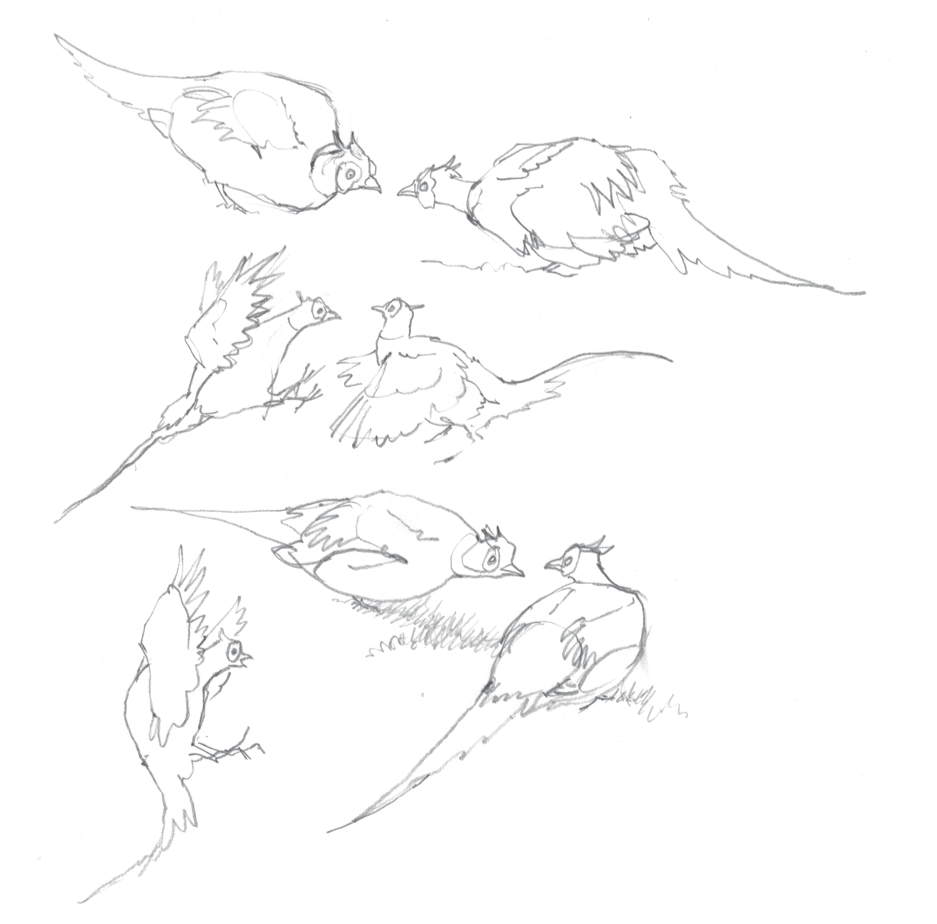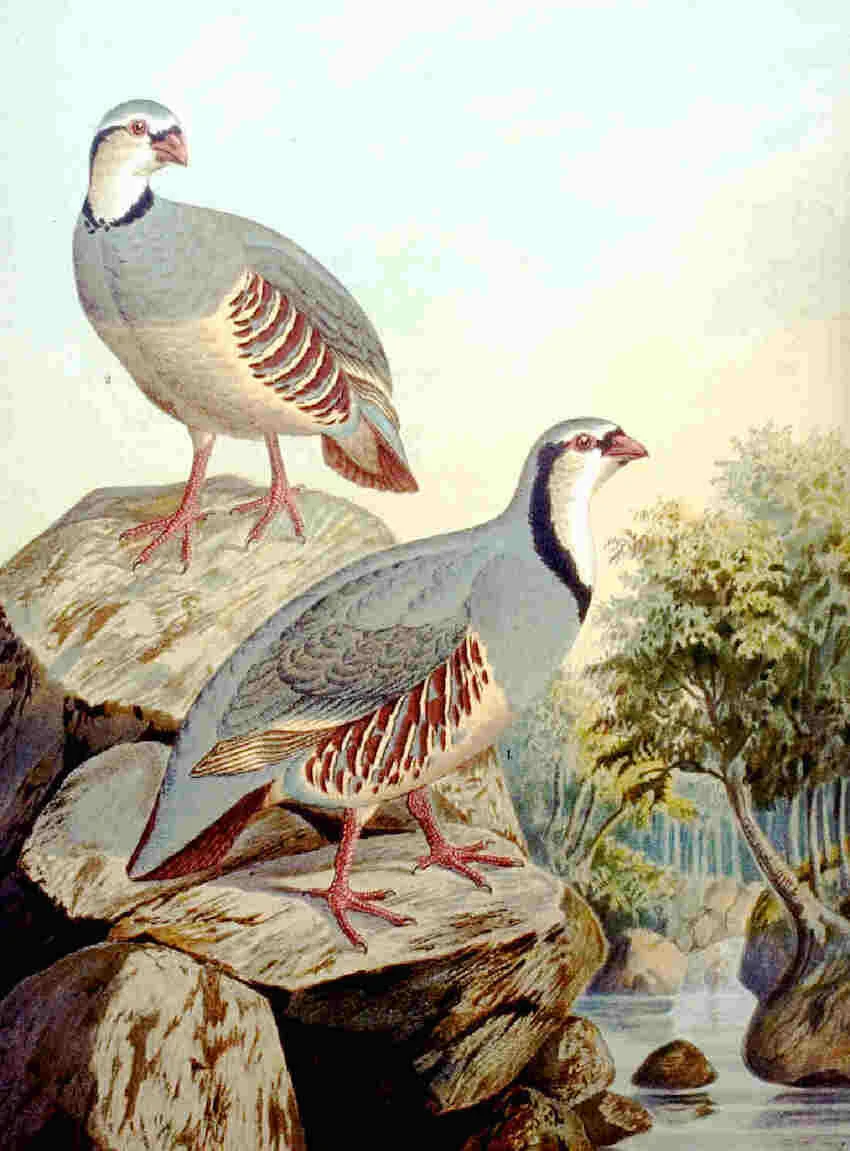PHEASANT (Phasianus colchicus) - Faisan de colchide
Summary
An introduced species of forest edge and fringe of agricultural lands, now well established in Europe. It has a distinctive harsh “crow” call:
Male Pheasant © Arlette Berlie
This bird was already introduced to Europe as a food item several hundred years ago from regions further east. Initially captive birds escaped and bred, then when sport hunting with shotguns became popular it was widely bred and released - in order to be shot at ! Source populations came from different races so what we have today in Europe is a bit of a mixture.
Female Pheasant © Arlette Berlie
Switzerland is no exception to this, although today releases no longer seem to be taking place and the number hunted has declined dramatically over the past 50 years. It does not do well in severe cold and so it hangs on only in a few isolated areas of the lowlands around Geneva, Berne, the north-east and Ticino. Maybe it is because of this dubious background, plus the flamboyant colours of the male who always looks perpetually surprised, I confess that I regard pheasants as rather stupid birds.
It is a bird that is often heard in the distance and its "crow" call is given intermittently and can carry a long distance - you just suddenly hear it as in this recording I took from the Norfolk coast in UK:
Male “crow” and wing drumming
This is its territorial and sexual contest call, often followed by a wing drumming display. In this next recording I have shortened the time between the "crows", but if you listen carefully, especially if you have headphones, you can hear the wing drumming display and following the second crow you can hear the male fly over to the female and then give some very gentle low clucking noises as the two make contact:
Someone once described the pheasant “crow” to me "like a Coca-cola can scraping under a door" - a concept that has remained with me ! The alarm call is in the same vein only less strident and more frequent:
And it may become very frequent:
Until when finally it all gets too much the bird takes off in raucous alarm:
Pheasant display studies © Frank Jarvis







